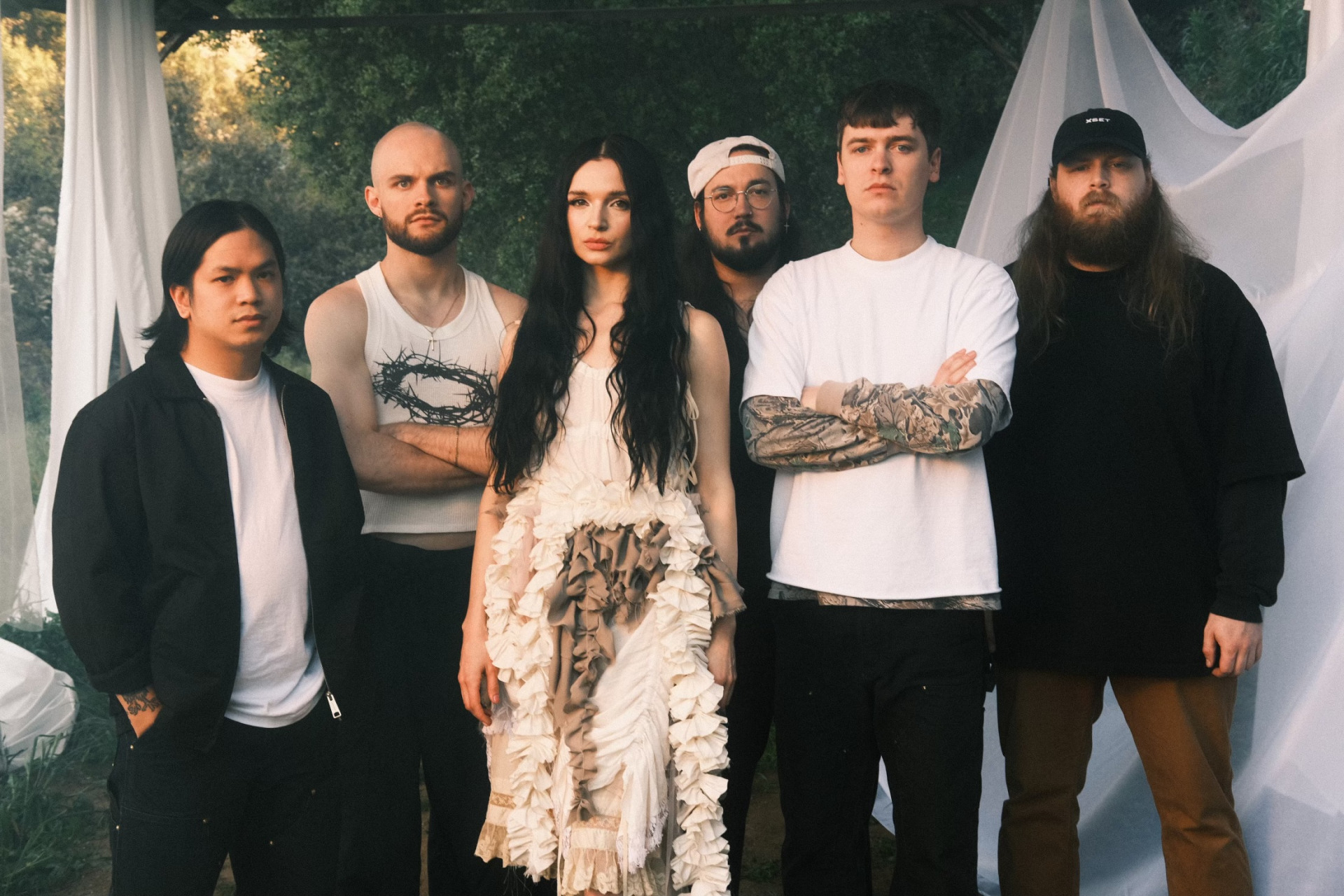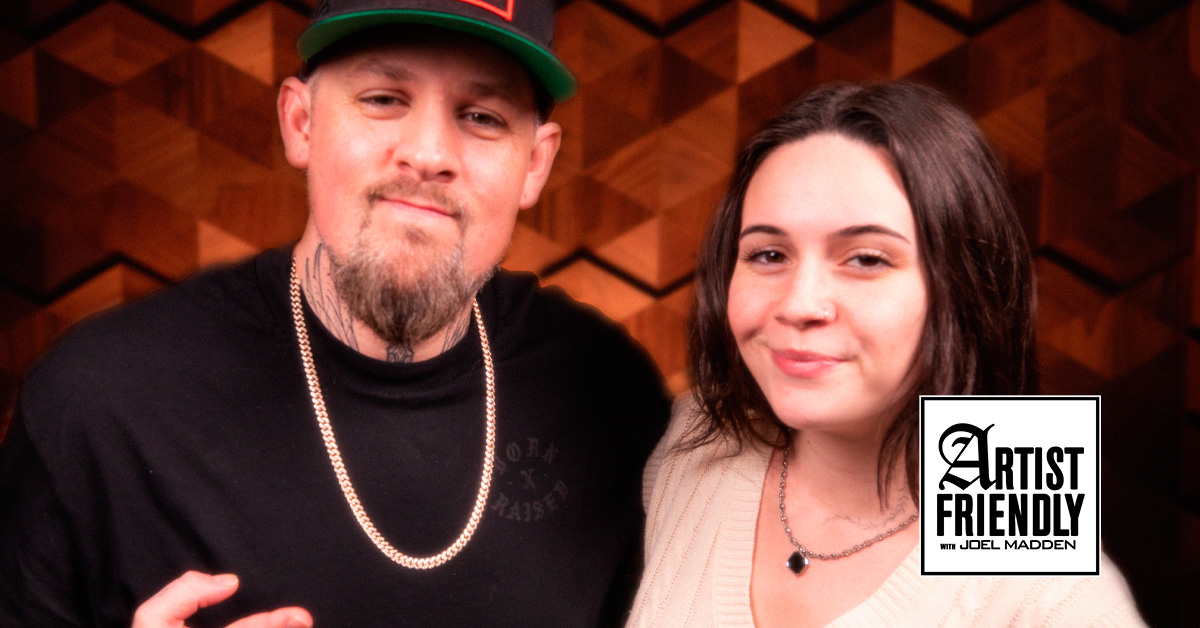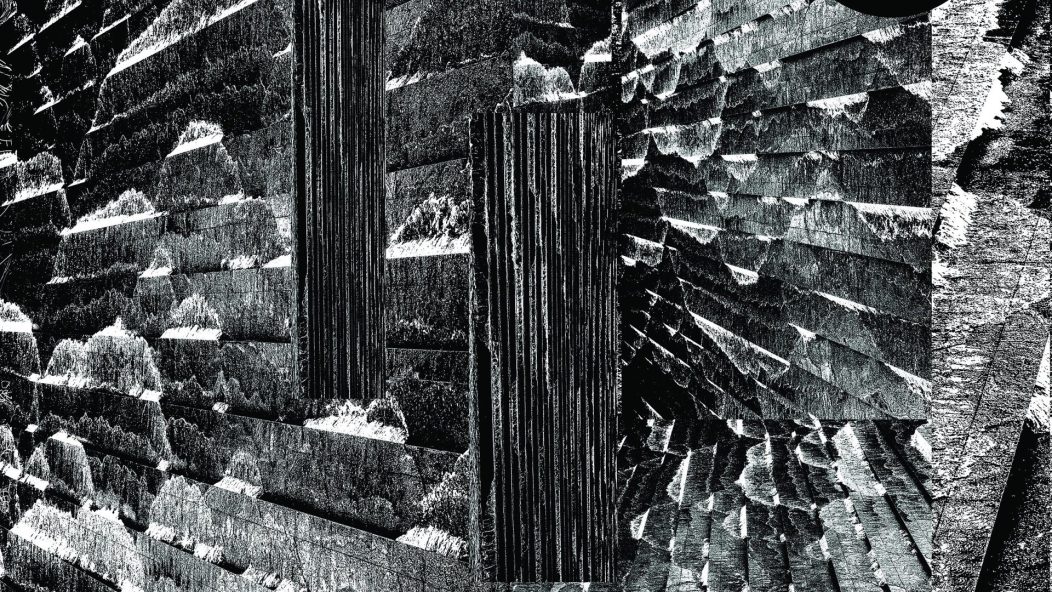
Mourning for Lost Futures with WuW's "En Souvenir Des Jours Que Nous N’Aurons Pas Vécus" (Song Premiere)
…
The past is a certain thing; the future, less so. Even the most predictable chain of events could be led astray by the smallest of changes — butterfly wings, hurricanes, and all that. Mice and men both make schemes, but many will never be realized: there are days that we can conceive of that we’ll never live. That — or something close to it — is what the French multi-instrumental duo WuW writes about in their song “En Souvenir Des Jours Que Nous N’Aurons Pas Vécus.” It’s the fourth track on their upcoming album Rétablir L’Eternité and even features Yakuza saxophone master Bruce Lamont — check it out in an exclusive stream below.
…
…
Two things initially drew me to this release — for one, WuW is the creation of two brothers, and as someone in a band with their twin, I’m always curious about family-driven groups. Secondly, Lamont, who guests on this song, participates and features in a bafflingly large amount of other musical endeavors from our hometown of Chicago and elsewhere — from the time I saw him open for Stinking Lizaveta solo (to an infuriatingly small crowd) to any of his hall-packing Yakuza gigs, he’s a reliable indicator of something worth paying attention to. Unsurprisingly, WuW fits into this categorization as well.
This band creates cinematic progressive music that blows minds but still sticks around afterward. Any of the layers of Rétablir L’Eternité are solid enough on their own, and generally rather ear-wormy, but when interlaced and presented as a whole, the result is nearly overwhelming. It feels like the duo is stacking genres and moods atop one another to find the optimal superposition — so, in “En Souvenir Des Jours Que Nous N’Aurons Pas Vécus,” you’ll hear a rock-driven rhythmic motif, developed following an initial saxophone-led lament. Then, after establishing an uneasy harmony with Lamont’s downcast melodies, that same pattern eventually collides with tremolo-picked, neoclassical guitar lines. Weird, but in a good way.
Each of the five tracks on Rétablir L’Eternité holds something unexpected — a characteristic both unintentional and yet purposeful, as WuW practices an unconscious, improvisational songwriting approach. What the process yields is unconventional, dynamic compositions that maintain subliminal consistency despite frequently jumping between dissimilar memorable passages. Intrigued by this and entranced by the music, I exchanged some questions and answers with the group — check out more details on their writing process, as well as creating music with siblings and intercontinental collaboration, below.
…
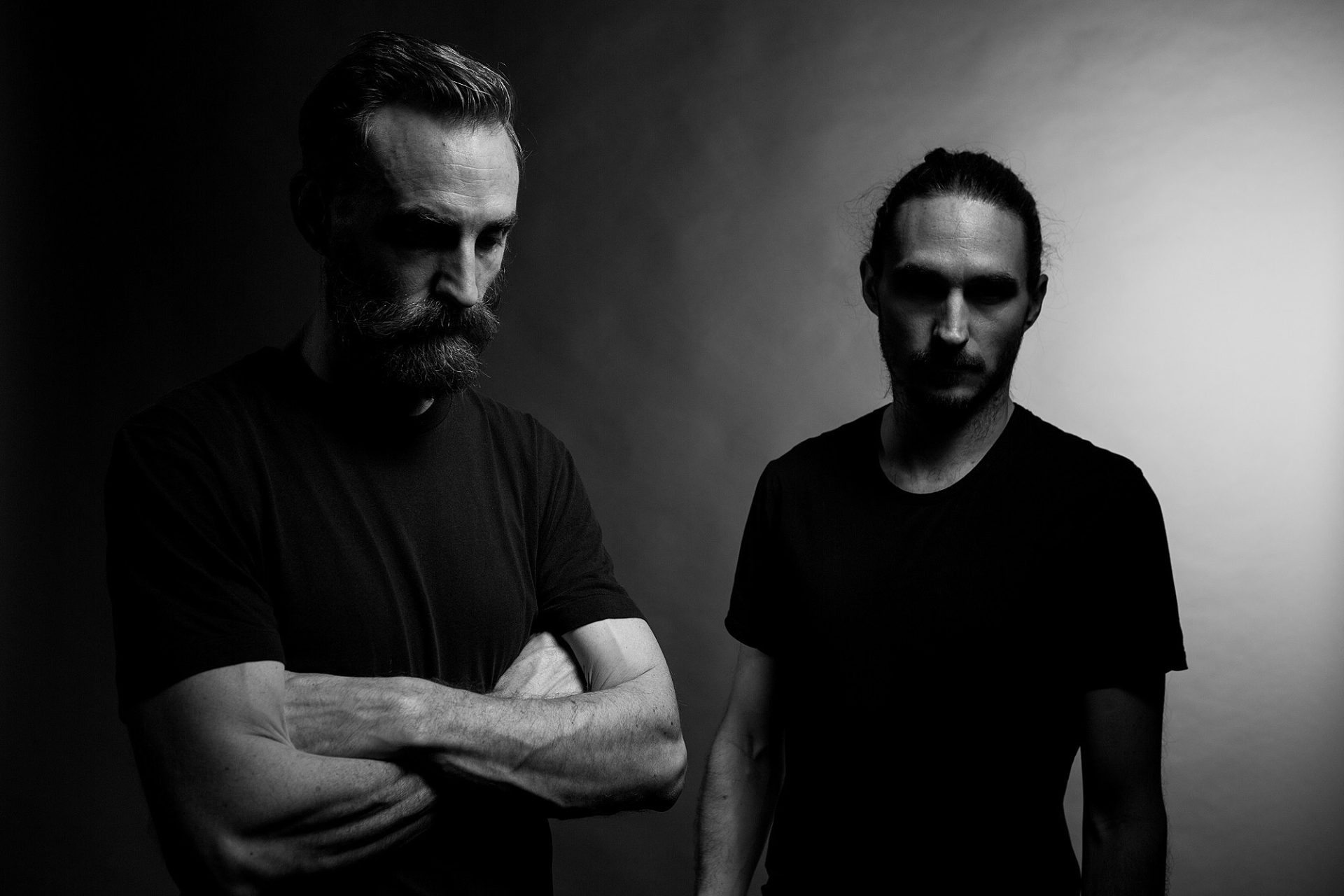
…
One thing about WuW that caught my attention is that you’re brothers — how has writing music with a family member shaped your songwriting process?
Actually, we have always played music together. As far as we can remember, we played music together at music school or in our bedroom, when we were teenagers, learning to play guitar and drums by ourselves. Playing songs from our favorite bands or composing our first songs. So it is very natural for us to play, and to compose together. And there’re no ego issues between us. We have total confidence and respect for each other’s point of view, even if we sometimes disagree, of course. So, it’s not very funny or spectacular to tell, but it’s the total opposite to “Some Kind Of Monster.”
As a fraternal twin myself, I have to ask a follow-up question: given that you’re both multi-instrumentalists, do you ever fight about who gets to play what?
Haha! No! We both have our preferences and instruments we are more comfortable with. So 99% of the time, Benjamin plays drums, Guillaume plays guitars and bass, and we share the keyboards parts (I would say depending on who had the idea)… once again, things are very easy and natural between us.
I can’t really pin it down, but Rétablir L’Eternité feels a bit different to me than your last album — more instruments in play or different textures, perhaps. Did you go into writing it with any ideas on what you wanted to do differently, or was it more of a continuous process after you finished the last album?
It was definitely a continuous process. I can’t precisely remember, but I would say we composed the first track for the second album (which is also the first on the track listing) just after we finished mixing “Rien Ne Nous Sera Epargné.” So probably about the same time that we signed the contract with Prosthetic Records for the first album. And we feel the same as you about the album, even if we can’t put it into words either. I would say each component is more assertive: it’s heavier, more “metal,” more ambient… all at the same time. Probably the main difference is that we did let each part of the music evolve and develop more than on the first album.
Your writing process for Rétablir L’Eternité has been described as “unconscious,” sort of an instinctive approach. Could you explain how that works in practice, and what made it the right approach to you?
It is the logical continuation of the previous answer. When we start a new track, we have absolutely no idea what it will sound like, what kind of atmosphere we will develop or what kind of structure will emerge. We always start with one or two short ideas, three at max. In a way, we try to let the music go and find its own path. And the good thing is, even we are surprised by the results. I like to think that in a certain way, things have their own existence and we are just some kind of catalyst or developer, like the bath analogy in photography laboratories in which images slowly appear. Maybe one day we will change our composition process but for now it works this way.
There are some interesting collaborators involved in this upcoming album: saxophonist Bruce Lamont, who appears on the track we’re premiering, and the vocals of Sam Kün (Welcome-X). How did you forge these relationships, and what made these collaborations a good fit for the record?
Sam has been a friend for a long time, we’ve known each other for more than ten years. He has a very large vocal range, from high notes and melodic singing to screams and growls. And that was exactly what we needed. We knew precisely what we wanted and he perfectly understood so the recording of his parts was very quick and easy.
With Bruce, it was much more improbable but also very easy and comfortable. We knew we wanted a different musical color for this song and a baritone-saxophone appeared to be an ideal fit to blend into our music and sound. We composed the track with that idea and tried to leave enough space for another part. But we didn’t know any baritone saxophonists personally. Of course we had Bruce’s name in mind because he is one of the most famous (if not the most) in our musical genre and we love his work. Prosthetic Records released Yakuza’s albums in the past so we thought, “Okay, let’s try this channel! We have nothing to lose anyway!” And it worked. He was very effective and available. We gave him very few instructions so he could play what he wanted and felt, the way he felt it. And the result is beyond our expectations!
Speaking of the premiere, the track is titled “En Souvenir Des Jours Que Nous N’Aurons Pas Vécus,” which roughly translates to “In Memory of the Days That We Have Not Lived.” Just like the song, it’s mournful, but elusive — what inspired the song, and does the title have a specific meaning for you?
I would say “In Memory of the Days That We Will Not Have Lived,” which is not any clearer, I do agree! As I said, we did not compose the tracks with any preconceived ideas or intentions. And the titles always come in a second time. There’s no secret meaning or key. On the contrary, I often find questions more instructive and enriching than answers. I just try to find unusual combinations of words or sentences, not too strange or too weird, but something that makes me think and consider things slightly differently. Here precisely, it’s about loss and mourning, past ones and future ones, and how to live as peaceful as possible with this. One of the most common and old feelings in the world!
…
Rétablir L’Eternité releases March 27th via Prosthetic Records.
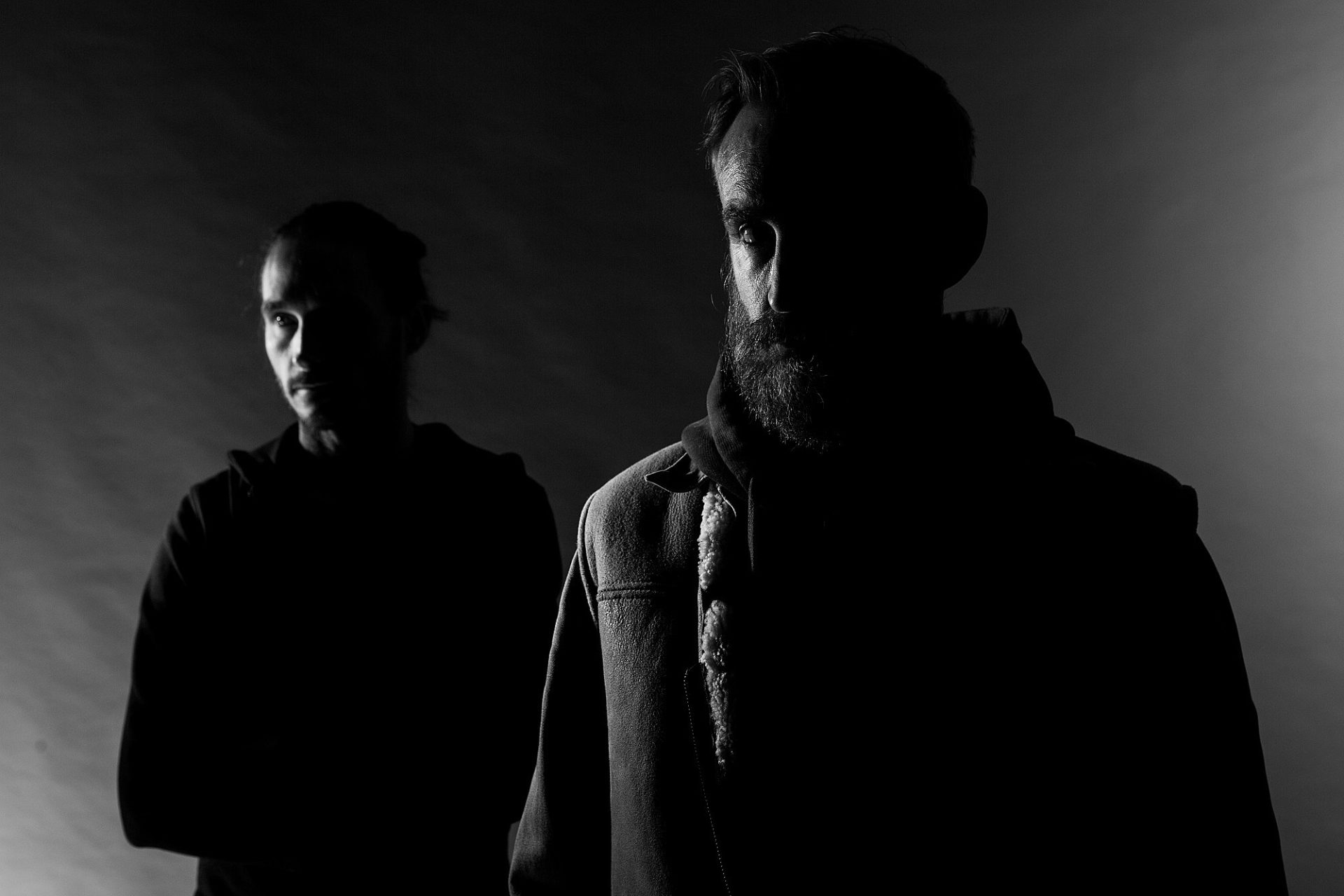
…
Support Invisible Oranges on Patreon and check out our merch.
…







